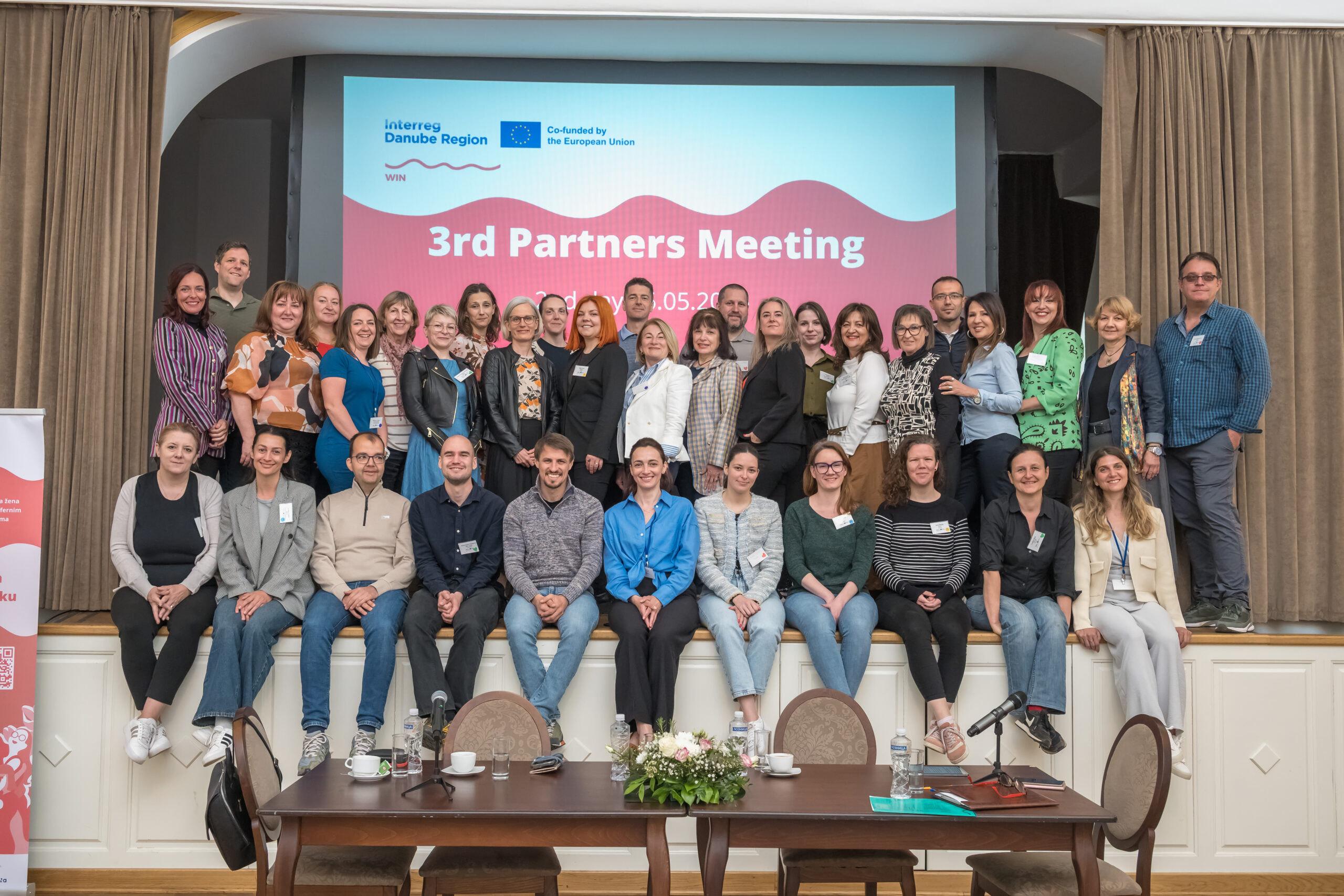
Project; 2024 – 2026
EUSDR Priority Area(s): PA 9 People & Skills
The WIN project addresses challenges faced by women in peripheral industrial regions across the Danube Region by means of building capacities and breaking down institutional barriers in these regions, and implementing social innovations for better labour market outcomes. It aims to drive meaningful change by promoting gender equality, improving women’s access to labour markets, and fostering socio-economic resilience in traditionally male-dominated sectors.
Objectives: The overall objective of the project WIN is to enhance the socio-economic standing of women in peripheral industrial regions, contributing to more accessible, inclusive and effective labour markets for women. In this way, the project aims to create sustainable employment opportunities by empowering women with skills development – immediate as well as long-term by means of lifelong learning – as well as entrepreneurship support, and innovative career paths. Through cross-border cooperation, the project leverages the collective knowledge and expertise of the involved stakeholders to create sustainable solutions for women in peripheral regions, and to develop policy recommendations to guide decision-makers in fostering gender-inclusive economic policies.
Need and (expected) impact: The WIN project addresses the systemic challenges faced by women in peripheral industrial regions, which are often characterised by economic decline, outdated industrial structures, and limited job opportunities. These regions have traditionally been dominated by industries such as mining, manufacturing, and engineering – fields where men typically occupy high-skilled jobs, while women are often restricted to lower-skilled roles. The expected impact is to bring about positive change in terms of 1) a better understanding of women’s specific needs and skills gap, but also of cultural and institutional barriers, which together contribute to gender inequality, 2) empowering women by equipping them with essential skills and resources, 3) improving the socio-economic development of peripheral industrial regions throughout the Danube Region, and 4) more effective policy-making at different spatial levels that can adopt more inclusive measures and practices, bringing down institutional barriers.
Macro-regional dimension: The project aims to implement seven pilot actions in different peripheral industrial regions in Austria, Bosnia and Herzegovina, Bulgaria, Czechia, Hungary, Serbia and Slovenia.
Stakeholders involved: In WIN, seven countries and 10 partners (Research Centre of the Slovenian Academy of Sciences and Arts, University of Graz, Verein Steirische Eisenstraße, LAG Sokolovsko, Central Transdanubian Regional Innovation Agency Nonprofit Ltd., Ministry of Economy Affairs of Herceg-Bosna Canton, Employment Office of Herceg-Bosnian Canton, Association of Business Women in Serbia, National Management School of Bulgaria, Association for Culture and Education PiNA) are working together to improve the position of women in labour markets of peripheral industrial regions. Industry, employers, business support organisations, public authorities, and policy-makers are involved in or targeted by project activities.
Budget and Funding: EUR 1 934 900 budget; 80 % funded by the Interreg Danube Region Programme
Further information: https://interreg-danube.eu/projects/win




